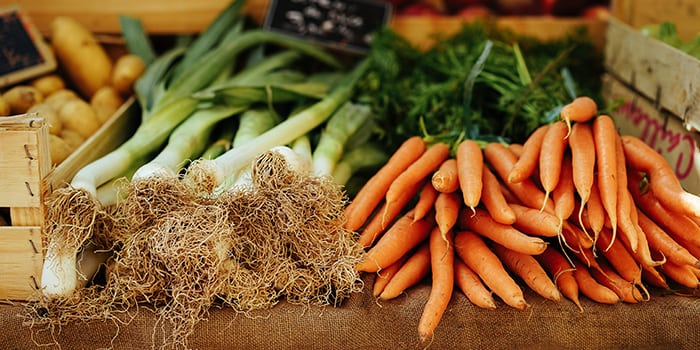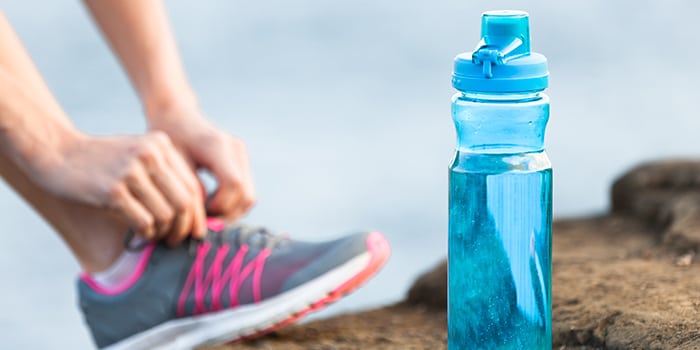When teeth become sensitive it can make eating and drinking your favourite foods difficult. For some, they avoid certain types of foods altogether.
Teeth become hypersensitive when the protective layer of your tooth (the enamel) becomes exposed or worn down. This exposes the tooth’s internal nerves to the foods you eat.
To help improve sensitive teeth, we have put together our top 10 tips from our dentists.
#1 Use a soft toothbrush
One of the most common causes of tooth wear is a combination of brushing too hard and using a toothbrush with tough bristles.
Dr Norah Ayad from Coastal Dental Care Burleigh Waters says, “harder bristle toothbrushes can be too abrasive causing damage to the [tooth] enamel.”
In addition to this, make sure you are not brushing too hard. “Aggressive brushing can cause the gums to shrink away thereby exposing the sensitive parts of your teeth,” says Dr David Li from Coastal Dental Care Emerald Lakes.

#2 Use sensitive toothpaste
Sensitive toothpaste helps to form a protective barrier and fill porous areas of the tooth which can allow temperature to travel into a tooth causing sensitivity.
After you have finished brushing your teeth, Dr David Li suggests, “spit out the excess toothpaste but don’t rinse so it can sit on your teeth and work while you sleep. If you have specific areas of sensitivity, apply a little pea-sized amount with your finger onto the tooth before sleeping.”
Continue to use sensitive toothpaste for at least a week to see if there is any improvement. If you are not seeing results from one toothpaste, Dr David Li advises switching to a different brand or type of desensitising toothpaste.
#3 Limit acidic foods and drink
Acidic food and drink wear the enamel of your teeth which can cause sensitivity. Foods that are processed, high in protein or contain sugar tend to be more acidic and can be bad for teeth.
The worst offending food and drinks are citrus fruits (lime, lemon and oranges), coffee, sweets, soda, tomatoes and dried fruit. ‘Healthy choices’ can also be misleading when packing a healthy lunch as well, you can read more about the top 10 sugary lunchbox snacks here.
#4 Eat more alkaline foods
In general, alkaline foods are better for oral health. Especially when you are experiencing sensitive teeth you should choose foods like;
- Cheese & sugar-free yogurt
- Milk
- Leafy greens – broccoli, kale and bok choy
- Crunchy vegetables – carrot and celery

#5 Avoid abrasive whitening toothpaste
While whitening toothpaste can make your teeth white, many achieve this by scratching away stains from the teeth which harms the tooth enamel.
Dr Nehal Drummond from Coastal Dental Care Runaway Bay suggests avoiding abrasive whitening toothpaste, especially if you are experiencing sensitivity. Whitening strips are also harmful as they dehydrate the teeth which exposes them to significant damage.
If you are looking for a white smile, it is healthier for your teeth to use whitening treatment under the supervision of the dentist. This way, they can assess your case and find the best course of action for your teeth. At Coastal Dental Care, all of our practices offer teeth whitening.
#6 Ask your dentist for help
Your dentist can offer stronger products which can help reduce tooth sensitivity at home. Tooth Mousse, for example can be applied directly to the sensitive area to provide extra cover for teeth and help neutralise acid.
Tooth Mousse is available from the dentist and should be used under their supervision.
#7 Teeth grinding or clenching
Teeth grinding, or Bruxism, is where teeth are constantly grinding together or are clenched down by the jaw for long periods of time.
Dr Drummond warns, “don’t clench or grind your teeth during the day (you may need a guard at night while sleeping) as this thins the enamel and makes teeth more sensitive.”
In severe cases, teeth grinding can lead to wearing teeth down to stumps, fracturing or loosening a tooth and even loosing a tooth altogether.
#8 Don’t brush teeth after eating
Contrary to popular belief, Dr Drummond suggests that you should wait to brush your teeth after eating acidic foods. The saliva in your mouth helps to return the mouth to its neutral state and wash away food debris.
Brushing teeth (even with soft bristles) while they are already in a weakened state can do more harm than good. It is best to rinse your mouth with water or chew sugar-free gum to boost your saliva production instead.
#9 Avoid electrolyte replacing drinks after exercise
“After heavy exercise the teeth are very dry and more prone to acid attack which can demineralise your teeth and cause sensitivity.
“Electrolyte replacement is important after exercise, but many electrolyte replacements are acidic.
“If you drink water initially after exercise and later replace your electrolytes, you decrease the risk of sensitivity,” advises Dr Darryl McIntyre, Coastal Dental Care Tugun dentist.

#10 Visit the dentist regularly
Seeing your dentist will help determine the possible causes as to why your teeth are getting sensitive. There may be underlying causes for your sensitive teeth that need to be seen to.
Further, at your 6-monthly check-up and clean the dentist can apply a concentrated topical fluoride which helps protect tooth enamel.
If you experience long-lasting teeth sensitivity or have questions about sensitive teeth, please don’t hesitate to contact one of our practices or book an appointment online today.


